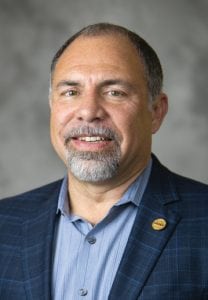
Last month, more than 8,000 electric co-op leaders from across the country gathered in Nashville for the National Rural Electric Cooperative Association’s PowerXchange. This event also serves as the annual business meeting of the 900 electric cooperatives across the nation — much like the annual meeting your cooperative holds each year. The gathering is the largest convention to be hosted in Tennessee since the COVID-19 pandemic began in 2020.
Tennessee’s electric co-ops were honored to host industry leaders. It felt good to be together again. We picked up where we left off as though time had frozen since our last meeting in March of 2020.
However, time hasn’t frozen, and much has changed during the pandemic. Changes in energy use as well as how and where we work are in parallel with continued growth of renewable energy sources and the need for a reliable electric grid.
The conversations about energy policy will have an impact on America’s rural and suburban communities long into the future. Electric cooperatives also face the same challenges as other industries: fuel costs, material shortages and a shrinking pool of qualified employees.
As work strategist Heather McGown states, “The last 20 months have forever changed where we work, who works, how we work and measure work, what we do for work and, most importantly, why we work.”
There was a multifaceted focus to PowerXchange. While rural broadband has been a major discussion item over the past few years and remains incredibly important, it is by no means the only transition going on in our industry.
As the future unfolds, it takes leadership to have a steady hand on the tiller as we face challenging seas of change. That is the primary reason co-op leaders gathered to discuss an ever-changing industry and cultivate future-focused thinkers.
Trends in our industry are having an impact on our planning today and will shape the coming decades: generation sources, energy storage systems, autonomous drones, advanced data analytics, and electric vehicles and charging stations, just to name a random few things.
NRECA Board President Chris Christensen talked about the importance of continued collaboration to face an uncertain future. Christensen is a rancher and former teacher who serves as a director at NorVal Electric Cooperative in Glasgow, Montana.
“It’s that diversity of experience that allows us to work together to tackle common challenges,” he said. “Some are specific to the electric cooperative network. Others are consistent across the entire electric sector, and we can share common solutions just as broadly.”
As NRECA’s president, Christensen said he has visited co-ops throughout the country to see firsthand how they build on shared ideas.
“Apply what you’ve learned here,” Christensen said at PowerXchange. “Take ideas you get today back to your co-op, and put them to good use. Continue to educate yourself and share your experiences with your fellow leaders back home.”
Tennessee’s electric cooperative leaders take our dedication to our communities seriously. Decisions we make that help our communities grow benefit not only today’s residents but also future generations. And as not-for-profit corporations, we always put the needs of the rural communities first.
As NRECA CEO Jim Matheson said, “There’s always something more we can do to keep our communities moving forward.”
We agree, and we lead by example.



